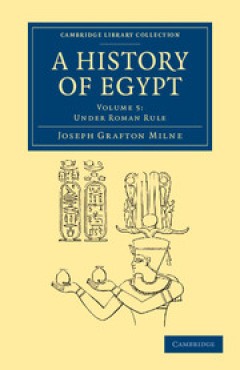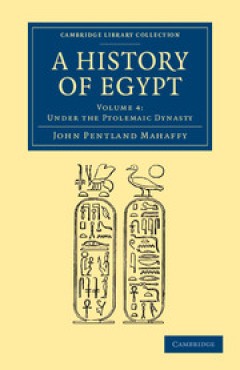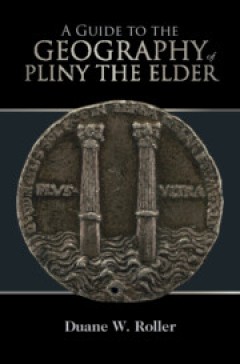Filter by

A History of Egypt
Published in six volumes between 1894 and 1905, this collection served as a valuable reference work for students and scholars of Egyptology at a time when ongoing archaeological excavations were adding significantly to the understanding of one of the world's oldest civilisations. At the forefront of this research was Sir William Matthew Flinders Petrie (1853–1942), whose pioneering methods ma…
- Edition
- -
- ISBN/ISSN
- 9781107325180
- Collation
- -
- Series Title
- Cambridge Library Collection - Archaeology
- Call Number
- -

A History of Egypt
Published in six volumes between 1894 and 1905, this collection served as a valuable reference work for students and scholars of Egyptology at a time when ongoing archaeological excavations were adding significantly to the understanding of one of the world's oldest civilisations. At the forefront of this research was Sir William Matthew Flinders Petrie (1853–1942), whose pioneering methods ma…
- Edition
- -
- ISBN/ISSN
- 9781107325173
- Collation
- -
- Series Title
- Cambridge Library Collection - Archaeology
- Call Number
- -

A Historical and Topographical Guide to the Geography of Strabo
Strabo's Geography, completed in the early first century AD, is the primary source for the history of Greek geography. This Guide provides the first English analysis of and commentary on this long and difficult text, and serves as a companion to the author's The Geography of Strabo, the first English translation of the work in many years. It thoroughly analyzes each of the seventeen books and p…
- Edition
- -
- ISBN/ISSN
- 9781316848203
- Collation
- -
- Series Title
- -
- Call Number
- -

A Greek Army on the March Soldiers and Survival in Xenophon's Anabasis
Professor Lee provides a social and cultural history of the Cyreans, the mercenaries of Xenophon's Anabasis. While they have often been portrayed as a single abstract political community, this book reveals that life in the army was mostly shaped by a set of smaller social communities: the formal unit organisation of the lochos ('company'), and the informal comradeship of the suskenia ('mess gro…
- Edition
- -
- ISBN/ISSN
- 9780511482830
- Collation
- -
- Series Title
- -
- Call Number
- -

A Guide to the Geography of Pliny the Elder
This is the first thorough English commentary on the geographical books of Pliny the Elder, written in the AD 70s. Pliny's account is the longest in Latin, and represents the geographical knowledge of that era, when the Roman Empire was the dominant force in the Mediterranean world. The work serves both cultural and ideological functions: much of it is topographical, but it also demonstrates th…
- Edition
- -
- ISBN/ISSN
- 9781108693660
- Collation
- -
- Series Title
- -
- Call Number
- -

A Dictionary of Greek and Roman Antiquities
First published in 1842, this extensive reference work was edited and written in large part by the eminent lexicographer and classicist Sir William Smith (1813–93). Knighted in 1892, Smith was one of the major figures responsible for the revival of classical teaching and scholarship in Britain. He also made contributions to biblical study, editing a series of reference works on the subject. H…
- Edition
- -
- ISBN/ISSN
- 9781139794602
- Collation
- -
- Series Title
- Cambridge Library Collection - Classics
- Call Number
- -
 Computer Science, Information & General Works
Computer Science, Information & General Works  Philosophy & Psychology
Philosophy & Psychology  Religion
Religion  Social Sciences
Social Sciences  Language
Language  Pure Science
Pure Science  Applied Sciences
Applied Sciences  Art & Recreation
Art & Recreation  Literature
Literature  History & Geography
History & Geography